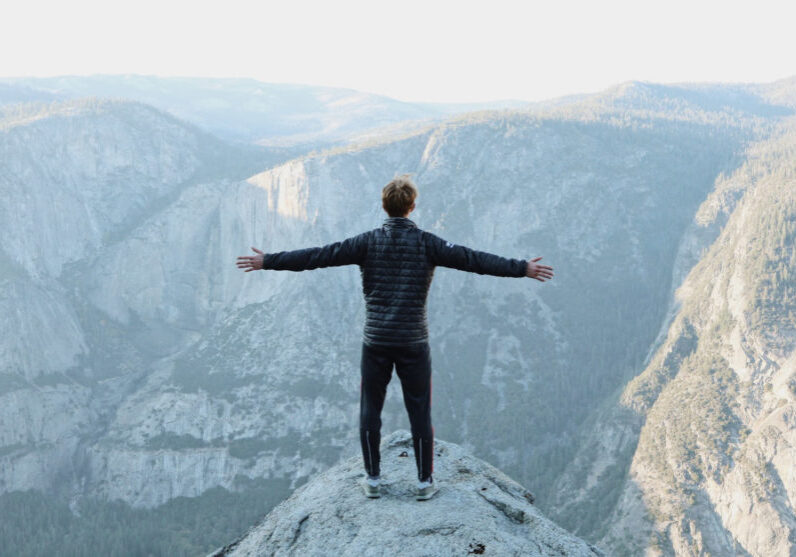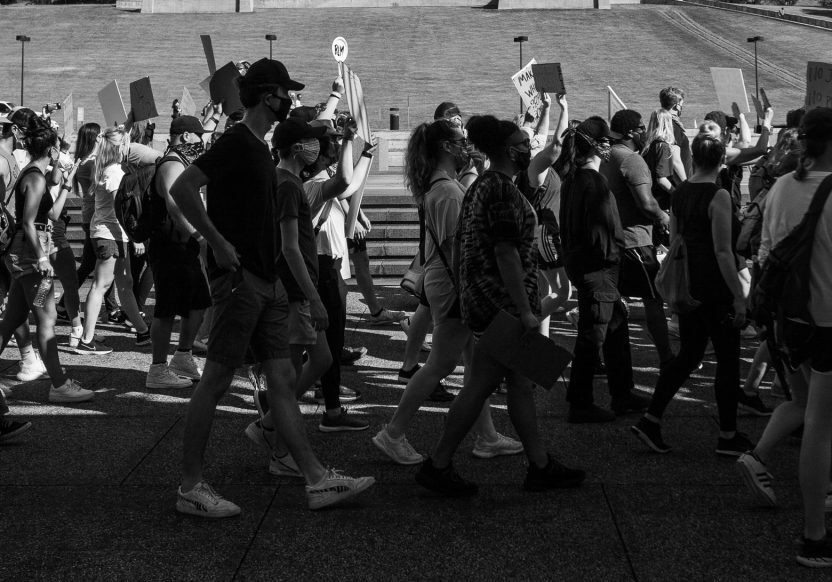Harnessing the Forces of Unification: Come Together, Stay Together
Question: “Can you explain the concept of “oneness”?”
 As one who passionately participated in the mysterious matrix of materiality, Jesuit scientist Pierre Teilhard de Chardin recognized—in a personal and mystical way—the absolute interconnectedness that characterizes the heart of our reality. As a critical realist, however, he was not naïve to the entropic pressures of the modern era: the knavish imbecility of institutional power, the unpredictable instability caused by economic ruination, the unhinged tribalism of our most cherished religious bodies, and so much more that has since intensified. As a result, he admonishes us: “We see that the great problem for [humanity] is coming to be to find how to control in [ourselves] the inevitable but supremely dangerous work of the forces of unification. […] For one form of synthesis that brings freedom there are hundreds of others that lead only to the vilest forms of bondage.”[1]
As one who passionately participated in the mysterious matrix of materiality, Jesuit scientist Pierre Teilhard de Chardin recognized—in a personal and mystical way—the absolute interconnectedness that characterizes the heart of our reality. As a critical realist, however, he was not naïve to the entropic pressures of the modern era: the knavish imbecility of institutional power, the unpredictable instability caused by economic ruination, the unhinged tribalism of our most cherished religious bodies, and so much more that has since intensified. As a result, he admonishes us: “We see that the great problem for [humanity] is coming to be to find how to control in [ourselves] the inevitable but supremely dangerous work of the forces of unification. […] For one form of synthesis that brings freedom there are hundreds of others that lead only to the vilest forms of bondage.”[1]
Teilhard was convinced of the essential need to overcome these energies of divergence and so cultivate the energies of convergence that lead to societal collaboration, intellectual synthesis, and an acute awareness of the Face of Union rising to greater transparency through our efforts of co-reflection. To harness effectively the energies of unification requires the formation of a single human community. This begins with the acknowledgement that no one is an independent member of society or humanity; rather, we are an interdependent body, a people of rich diversity who only together can envision a growing, glowing future. This demands that we become incubators of synthetic thought and catalysts of cultural transformation.
According to Teilhard, the ideal (but not impossibility) of conscious convergence emerges through the process of hominization. He describes this process as the progressive maturation of one’s unique identity by which a person comes to realize the importance of this development and, by natural extension, the broader development of the culture.[2] Mindful of being a unique center of consciousness, the person has awakened to the depth dimension of wholeness, and thus identities more readily the gravity of our fragmented world. The personal work of hominization, in other words, allows our originality to come into view, and, as a vital consequence, teaches that its continual enhancement is only actualized in union with all reality, as union itself underlies all reality. Teilhard speaks of the experience of the initial stages of hominization: “The [person] finds that [he/she] has obtained a new richness of life which, increasing almost without limit, [his/her] own incommunicable sense of value. […] It leads to a new sense of the species.”[3] Having received the beginnings of a new richness of life, therefore, the person is now charged with the responsibility to sustain this emergence—to remain open to the otherness of all reality in order to realize and so complete the much deeper union that binds reality together. So please, God, for the sake of God and for the sake of all life, come together, stay together, and work toward the construction of a future with the greatest possible freedom.
Notes:
[1] Pierre Teilhard de Chardin, Activation of Energy: Enlightening Reflections on Spiritual Energy, trans. Rene Hague (London: William Collins Sons & Co Ltd., 1976), 47.
[2] Ibid., 34.
[3] Ibid., 202-03.
 View print-friendly version
View print-friendly version
2 Comments
Related Posts

A Whiteheadian Response: The God of Persuasion
Question: “Please help me to further understand, I thought that God did not direct our lives. We made choices, those choices CREATED—God’s presence is in the creation of the choice…


Thank you.
Robert, thank you so much for reminding us that our self awakening, our Incarnation, is critical for continued existence. Not as individuals but as a world. Our dynamic entanglement increases complexity while we seem to continue to loose ability to reach even the closest silken thread.
How to keep us moving forward? What to do when everyone stays in their “pits” like “frogs set in water to boil but know not to jump out?”